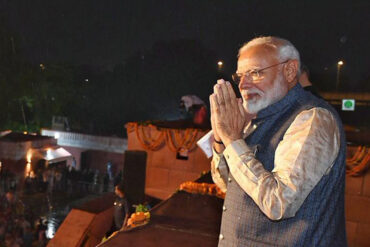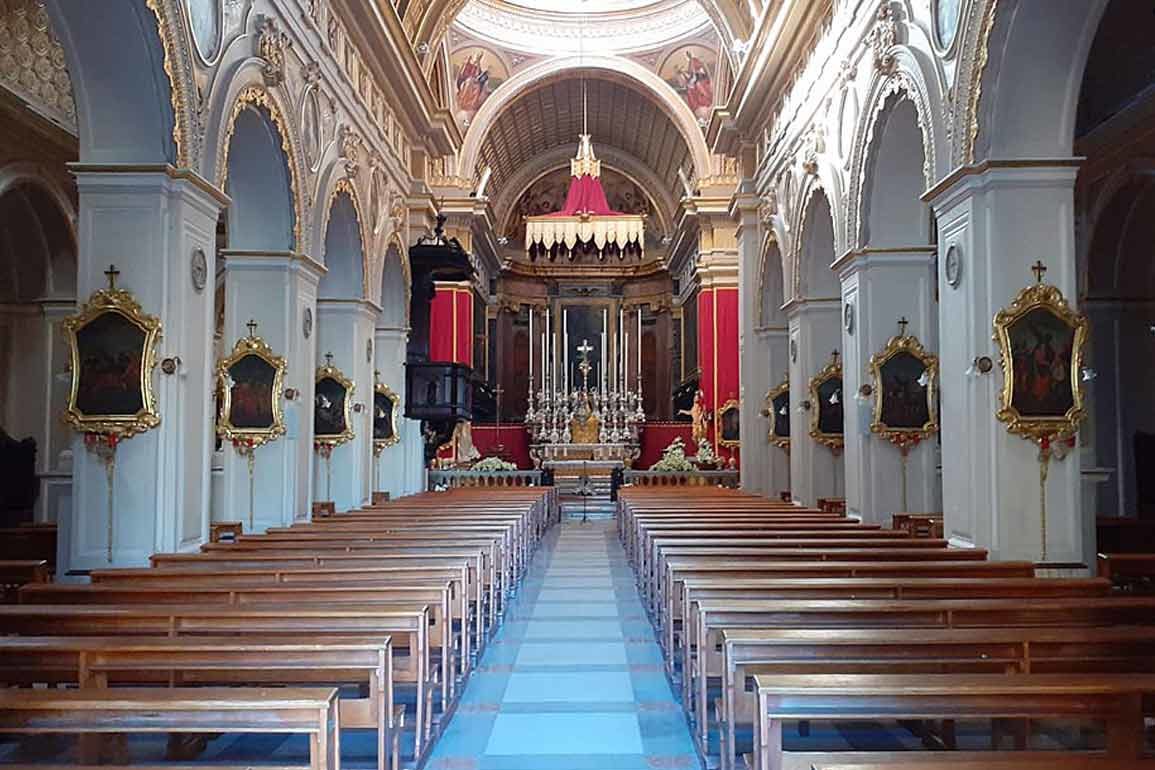Will religion survive COVID-19? Of course, it will. Will religious worship survive the pandemic? The answer to this question depends more on what we mean by worship. Worship becomes, over time, a mockery of true religion. This has happened in all religions. What connection today’s Christianity has to the life and teachings of Jesus Christ is a question not to be asked.
One is reminded here of Jesus’ cleansing the Jerusalem temple. It became necessary because the temple itself had become, under the priestly hierarchy, a ‘den of thieves’. What is, presumably, a house of God becoming, in reality, a den of thieves points to the peril all religions are necessarily exposed.
The all-important question is this: Who is it that we worship? Mammon-worship, said Jesus, has an affinity to the core of human nature. So, we pretend to worship God—never mind by what name or colour you know him/her—but it is Mammon that we serve. All religions are identical in this respect. Religious differences are superficial. At the popular level there is only one God: Mammon. God is the mask we put on Mammon. This is the seed of religious hypocrisy. Hypocrisy, wrote Schopenhauer, is inherent in priest-craft. Not surprisingly, while Jesus was touchingly compassionate towards prostitutes, he was fiercely intolerant of priests whom he denounced as ‘whited sepulchres’. There is no greater denunciation of hypocrisy than this in world literature.
It is significant that the current priest-craft-ridden religion, and the worship in churches or temples to which religion is reduced, is entirely rituals-centred. Worship is no more than a series of rituals. Yet all religions began as fountainheads of ethical insights and spiritual principles. The core purpose common to all of them was human transformation. Priest-craft in all religions stands this on its head. Human beings don’t need to change; it is God who needs to be manipulated and made pliable to petty, covetous individual expectations and fantasies. Religion, which began as an agenda for human transformation and social regeneration, declined, in the twilight of priestly ascendancy, into a mummification of the status quo. It is to this that worship, as practised today, is aligned.
The advent of Covid-19 and the global stress and strain it has generated has thoroughly, brutally exposed this genre of religiosity. The dramatis personae of pietistic religiosity—priests, self-styled prophets, faith-healers, hierarchical church Moghuls who are presumed to stand in special relation to the Almighty because of the pomp of their offices and the splendour of their costumes—stand exposed for their redundancy. They are like dry wells to parched lips and slaked throats.
But does that mean that worship will end or that it will change in any meaningful way? Well, let’s see…
One thing is certain: Covid-19 is not going to change human nature. Human nature craves illusions and delusions. Our species cannot stand much truth. That is why Jesus Christ was crucified. His foremost crime was that he stood for truth. Humankind does not want their delusions—as Plato illustrates through the Allegory of the Cave in the Republic— disturbed by the light of reality.
Over centuries the priestly class in all religions have painstakingly conditioned believers within a closed system of dogmas and doctrines. It is assumed that everything relevant is already known and that adding anything to it is heresy and impiety. Religion, which is meant to be a pilgrimage after the ever-unfolding truth hitched to the dynamism of human destiny, is thus petrified into an iron cage of orthodoxy, sustained by otherworldly expectations and proffered worldly favours to be secured by humouring one’s God. The net-result of the religiosity and worship in vogue today is that believers become cosmic beggars. God is assumed to be an unfailing super ATM, with worship as one’s credit card. This idea appeals deeply and compellingly to the weaknesses of our species.
It is reasonable to assume that the traumas generated by the present pandemic, and the disenchantment resulting from the manifest irrelevance of the priestly, church-centred make-beliefs initiate re-examining of one’s idea of God. Clearly there is something wrong somewhere. That is undeniable and unmistakable. The all-important question is: Will the religious-minded individuals dare to re-examine their idea of God and, as a consequence, the idea of worship?
I doubt if they would; for the reason that the influence of the priestly class has destroyed the capacity for thinking in believers. As per existing religiosity, reason is incompatible with faith. To think is to be impious. The suppression and criminalisation of thought is the foremost strategy priests use to re-enchant the antique furniture of their regressive religiosity. There is no evidence in the Bible, for example, that God demands blind faith from people. Going especially by the example of the book of Job, God requires that one interrogate the status quo and look through the façade of religious stereotypes.
But religiosity is driven by habit, not by thinking. Attending congregational worships and visiting places of worship are ingrained in believers as binding obligations and hard-wired personal habits. Habits die hard. On this, hinge the hopes of the beleaguered retailers of sacerdotal religions. But will believers get out of this habit because they have realized that not going to church worship or temples really makes no difference in their life? Again, let us see…
Undeniably the Covid-19 pandemic is a complacency-shattering trauma for our species. So, fundamental realities should, in theory, come under scrutiny in this crucible of human suffering. But whether or not that happens will depend on the quality of the laity. The Christian community is woefully short on what Max Weber calls ‘the intellectual lay elite’, who alone could be agents of change in any religious community. The lay elite exists; but the moment they enter the charmed circle of church-centred piety, they cease to be ‘intellectual’. All distinctions disappear between them and the religiously naïve. This makes one sceptical of any substantial change resulting from the present crisis.
But there is a factor to be reckoned. That relates not to God but to economy. If the world economy takes a severe beating and the Babel Towers of human pride and euphoria crumble, it could have a radical impact on our practice of religion. This is because, as I have already stated, we are Mammon-worshippers in truth and God-worshippers only in appearance. Economic factors, not religious doctrines, shape our religious and ethical outlook. For our worship to change, our servility to Mammon has to be shattered. So, if and when that happens we could expect changes in the style and substance of popular religiosity; not otherwise.
Even in such a scenario, unless the ‘intellectual lay elite’ serve as change-agents, the prospect of change could be wholly wasted. Nothing happens automatically. Changes have to be worked for. There is a price to be paid. So, faith devoid of courage will prove unequal to this task. Whereas, the priests, experts as they are at thriving on popular anxieties and deep-rooted fears, could use the very same situation to tighten their stranglehold all the more.
The priestly class has a special genius for explaining away all inconvenient truths. The fact that their traditional merchandise failed human beings in the wake of COVID-19 crisis, will be expertly explained away under aegis of blind faith. Appeals will be made, with greater earnestness than was the case in the pre-corona days, to pious sentiments. Attempts will be made to invoke the substratum of fear in the believer’s psyche. The pandemic will be projected as God’s punishment on a people for being less enthusiastic about church worship. So, rather than anticipate a changed religiosity, I would apprehend a frenetic reassertion of the old fear-and-anxiety based religiosity. The highways of superstitious religion will pick up traffic. Shops and malls of priestly wares will re-open. Insecurity-ridden customers will return in droves for the same old wares, paying for them with same old credit cards issued under the hand and seal of Mammon whom they serve.
Pre-Covid-19 worship will survive, even if God doesn’t.







